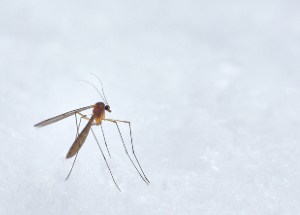It’s safe to say that mosquitoes would top the chart if one were to rate the most-hated insects, and for a good reason. Just thinking about that whiny buzz could drive one crazy.
Much worse than this, they are capable of spreading infectious diseases, so it turns out that a bunch of nasty itchy swollen bite spots is far from the worst-case scenario.
There are multiple methods of dealing with the pest that can and should be mixed and matched. One approach is to find out what eats mosquitoes and employ the critter’s natural enemy to keep its population in check.
Predators That Prey on Mosquitoes
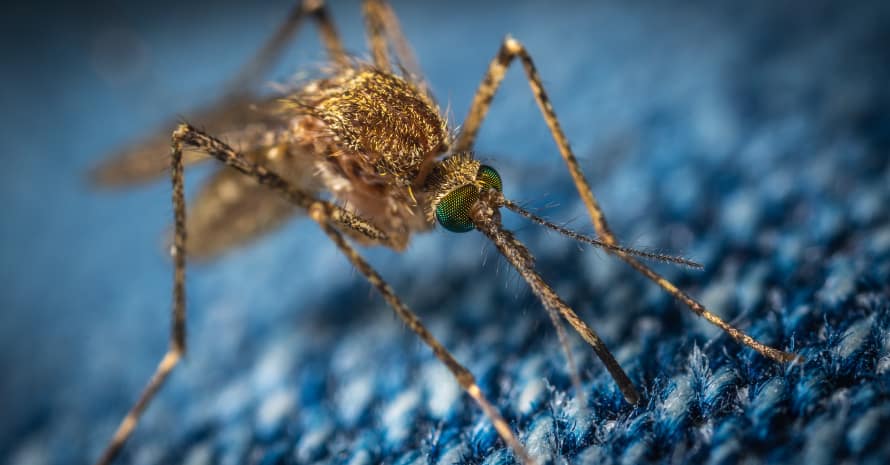
Luckily for us, the Earth is home to many species that like to include a generous serving of mosquitoes in their diet. Let’s explore the diversity and find out which has the biggest appetite.
Common Guesses on Mosquito Predators
As an entomologist, I get asked all kinds of questions about possible mosquito eaters and how effective they can be in dealing with the nearly ubiquitous critters. In this section, I’ll briefly answer the most common of those.
Do ladybugs eat mosquitoes?

No, they don’t. Ladybugs are much prized by horticulturalists for eating the sap-sucking aphids, although it’s not universally true across the many ladybug species.
Those of them who are carnivorous tend to prefer scaled insects. There are ladybugs that have a diet based on plant matter and/or mildew, too. Unfortunately, they tend to avoid bloodsuckers in general, and mosquitoes are no exception.
Do mayflies eat mosquitoes?
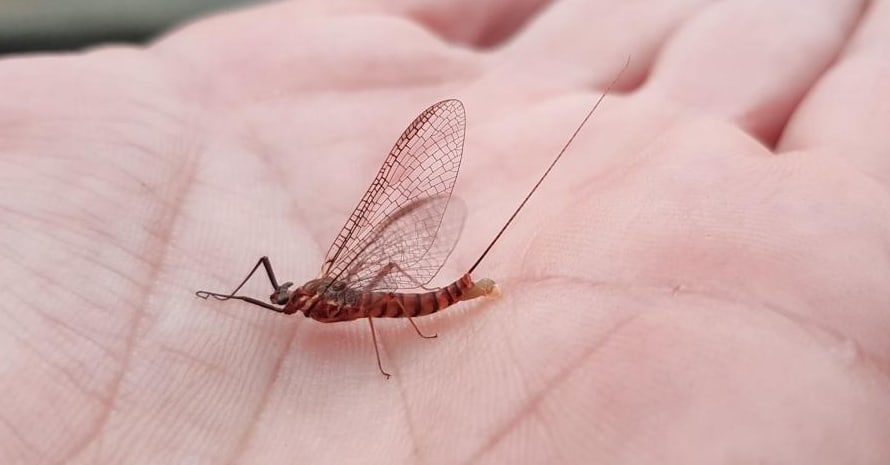
Another negative answer. Mayflies don’t feed on mosquitoes because they are largely herbivorous, although nymphs of certain species do consume insects such as chironomids.
Do bees eat mosquitoes?
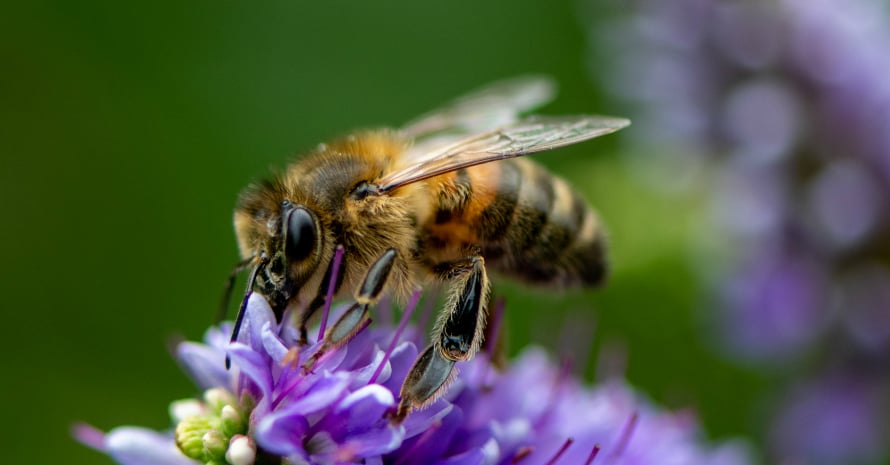
They don’t. This is no wonder given the fact that bees aren’t generally attracted to meat. Their diet consists of plant-based matter such as nectar and pollen.
Do wasps eat mosquitoes?
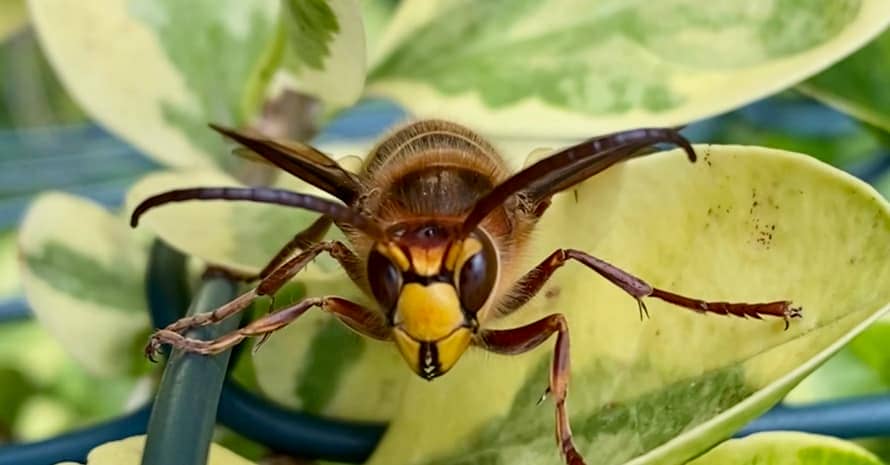
No, or at least not commonly. Wasps have a reputation for controlling spider and caterpillar populations, and it’s true that they will kill smaller insects to nourish their larvae, but mosquitoes don’t generally seem to be on the menu.
Do bats eat mosquitoes?
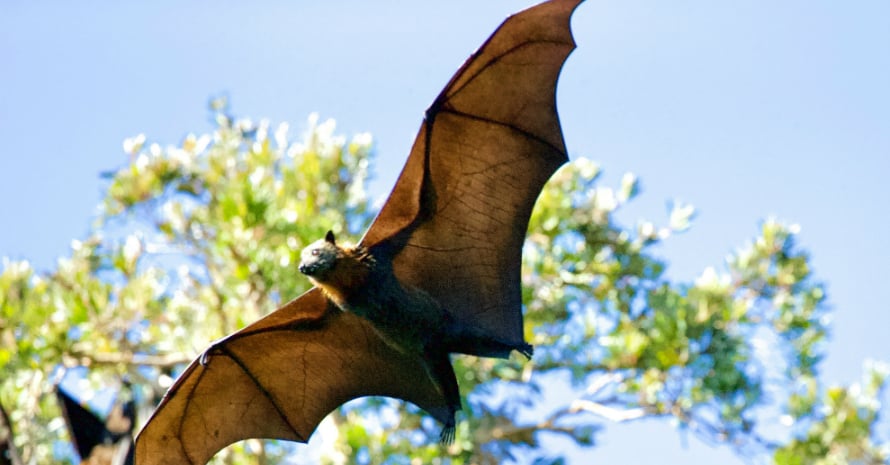
They do, but not as much as they are rumored to. Bats stuffing themselves on the tiny bloodsuckers is not exactly a hoax but rather a rare occurrence, since the Chiroptera mammals generally prefer other insects such as beetles, flies, and moths.
Bats live on a diverse diet of smaller bugs as well as creatures similar to grasshoppers in size. Indeed, they can afford to be picky.
Do frogs eat mosquitoes?
Yes, they do, and so do toads. Probably the most frequently named candidate for the world’s biggest mosquito eater, the frog can at best prevent the critter population from growing out of control. Neither adult frogs and toads nor their tadpoles appear to rely on mosquitoes as their staple.
Do spiders eat mosquitoes?
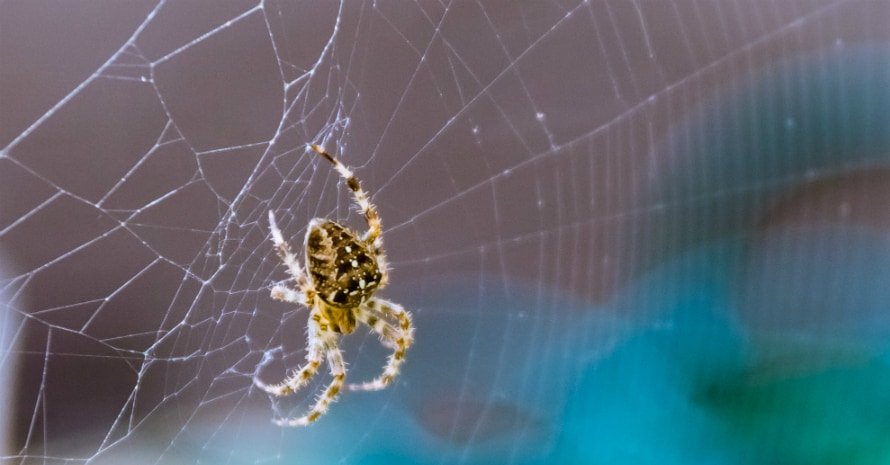
Yes but, again, not enough. Spiders are best known for making sticky webs that catch flying insects indiscriminately. However, there’s no evidence at present to prove that by keeping spiders, you can put an end to the mosquito problem.
Also Read: Mosquito Magnet Review
Do fish eat mosquitoes?
Not all of them, but some do. More specifically, fish tends to prey on mosquito larvae rather than adult individuals. Carps, minnows, killifish, and tilapia are just some of the fishes known to feed on mosquito larvae. These are sometimes used as part of biological part control.
Yet, the Best Appetite for Mosquitoes award surely goes to the appropriately named western mosquitofish, known scientifically as Gambusia — a freshwater species that has a history of tipping the eco-balance once introduced to new water bodies but now used extensively in combination with aquaponic measures.

Meet the Less-Familiar Mosquito Eaters
Some animals are often falsely accused of (or should I say praised for?) feeding on mosquitoes. Conversely, there are living beings that enjoy less attention but still have potential in bloodsucker management.
Insects that eat mosquitoes
If you feel strangely assured that there must be mosquito-eating insects on the planet, you are right.
Quite surprisingly, the answer to what bugs eat mosquitoes includes… well, mosquitoes. Indeed, there are cannibalistic species that kill their likes for food. The Toxorhynchites genus is one of the best-known examples of predacious mosquitoes. Given the fact that representatives of the group are not known to carry any human diseases, it seems to be a beneficial genus.
The dragonfly is another likely candidate for natural mosquito control. Naiads prey on the critter’s larvae, effectively causing the population to dwindle over time. It was with dragonflies that the history of mosquito biocontrol began.
Finally, there are other members of the Odonata order to which dragonflies belong, the similar-looking damselflies. The aquatic larvae of these bright-colored insects also prey on mosquitoes every once in a while, although on a limited scale.
Also Read: Indoor Mosquito Killers Described
Mosquito-hunting birds
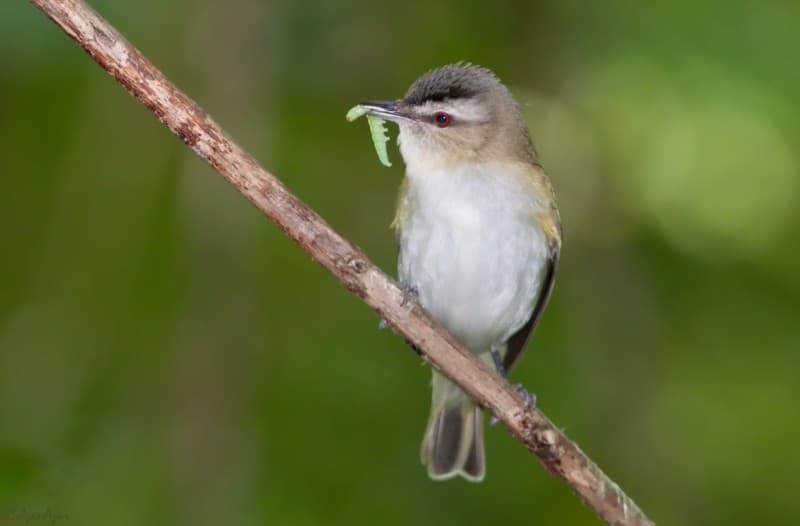
Turning your garden into a bird sanctuary that will guarantee you a critter-free life sounds appealing, but how effective is this approach?
There are many bird species whose diet includes bloodsucking insects. Common as they are across the Northern Hemisphere, barn swallows are known for feasting on adult insects that they catch in flight. Mosquitoes are no exception to this rule.
Given that barn swallows gravitate towards a migratory lifestyle, though, this is not the mosquito predator to rely on all year round. Other potentially useful birds found in North America include purple martins. Ducks and geese occasionally eat mosquitoes as well.
Birds can enhance your natural critter barrier that prevents the population from overgrowing but are unlikely to quickly smother a massive infestation.
Reptiles that prey on mosquitoes
With their iconic long tongues, it’s no wonder that lizards and geckos don’t mind catching a couple of mosquitoes every once in a while.
Both are diurnal, meaning that their activity hours do not coincide with those of most mosquito species (please note that not all mosquitoes are creatures of the night), hence the consumption rate is limited.
Finally, there are turtle species that feed on mosquito larvae. The red-eared slider is probably the most well-known of these.
Also Read: Top Mosquito Fogging Machines Reviewed
Mosquito Diet FAQ
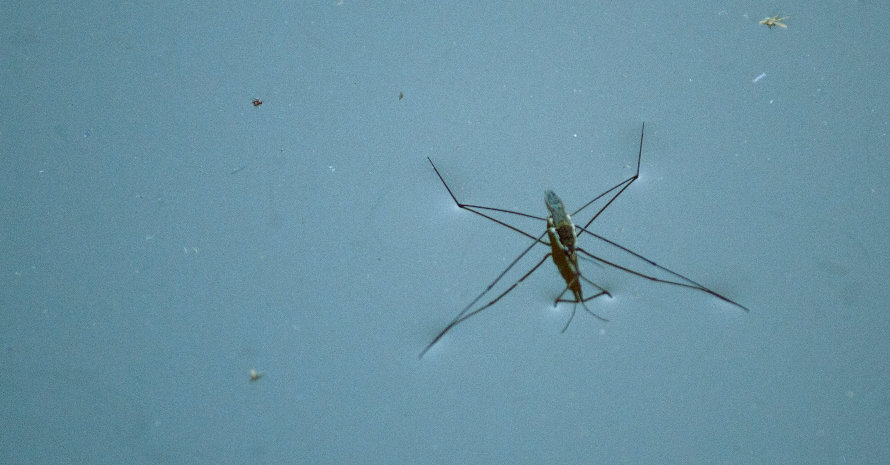
Here, I briefly answer some curious questions related to mosquito eating that I often get asked as an entomologist.
What do mosquito larvae eat?
Mosquito larvae usually feed by filtering out small particles of decaying matter. They have been noticed to occasionally eat other mosquito larvae, too.
What fish eat mosquitoes?
Tilapias, the so-called mosquitofish, carps, killifish, and minnows are best known for their appetite when it comes to mosquitoes (mostly larvae).
Do wasps kill mosquitoes?
They might kill a mosquito in a dispute over territory or otherwise, but it’s not part of wasps’ feeding habits.
Natural Predators as a Pest Control Strategy
It turns out that our planet is full of little and not so little things that eat mosquitoes, but what does this imply? Biocontrol, that is, using the species’ natural enemies such as parasites and predators to reduce its population or at least prevent its spreading, has a long history in mosquito management.
Certain fish species have been proven effective. There’s anecdotal evidence of other species being used to the same end with success as well, such as lizards and bats.
Do you feel like you could use a living being to keep the bloodsuckers away? Share in the comments!
Also read:
- When Are Mosquitoes Most Active
- Homemade Mosquito Trap
- Homemade Mosquito Repellent
- Bugs That Look Like Mosquitoes
- How to Kill a Mosquito in Your Room
References:
- Mosquito Bites: Everyone is at Risk! (U.S. Department of Health & Human Services):
https://www.cdc.gov/media/dpk/diseases-and-conditions/mosquito-borne-diseases/index.html - ladybirds, lady beetles, ladybugs (J. Howard Frank (retired) and Russell F. Mizell, III (retired), University of Florida):
http://entnemdept.ufl.edu/creatures/beneficial/lady_beetles.htm - Program Options on time of implementation: Proactive vs. Reactive Measures (Boston University):
https://sphweb.bumc.bu.edu/otlt/MPH-Modules/PH/West_Nile_Virus_EEE/West_Nile_Virus_EEE_NEW5.html - About Mosquitoes (by Matthew Chmielewski, Biology graduate student, Clark University):
https://www2.clarku.edu/~tlivdahl/back/index.html#:~:text=Mosquito%20larvae%20are%20usually%20filter,to%20eat%20other%20mosquito%20larvae.

